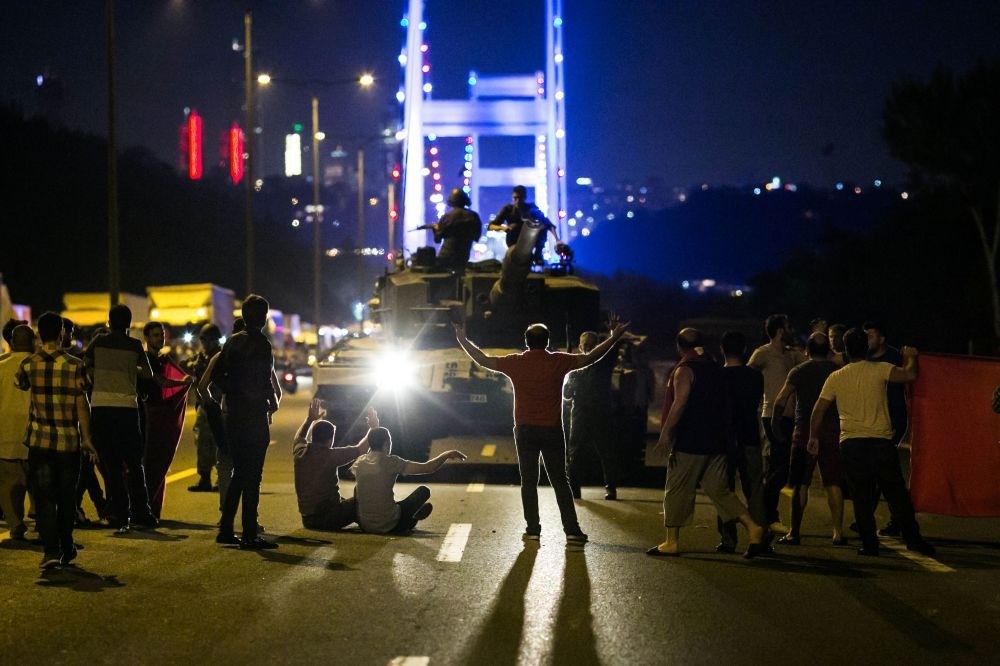New indictment charges 24 for FETÖ coup attempt

Twenty-four soldiers accused of aiding pro-coup troops trying to take over the Istanbul governorate on July 15, face terror charges in a new indictment against those behind the foiled putsch blamed on FETÖ
The latest indictment against the pro-coup troops that killed 248 people resisting the July 15 putsch attempt has charged 24 troops with acts of terror and has asked for multiple lifetime sentences for the group that aided others who invaded the Istanbul governorate.The chief prosecutor's office in Istanbul submitted the indictment on troops involved in the coup, blamed on the Gülenist Terror Group (FETÖ), to the court for approval. The indictment is the fourth in Istanbul against troops supporting the coup that led to the killing of 248 people, including civilians and security personnel who confronted the putschists.Prosecutors are asking for the heaviest sentences for the suspects accused of attempting to overthrow the government and on violations of the constitutional order, as well as membership in a terrorist group.Most defendants are conscripts, while non-commissioned officer Yusuf Yıldız who led the troops to the governorate, are accused of being active FETÖ members.Istanbul prosecutors already drafted three indictments regarding the coup attempt in Istanbul. Other indictments implicate troops and officers who occupied Sabiha Gökçen airport on the Asian side of the city, the Istanbul offices of the ruling Justice and Development Party (AK Party) and lastly, 90 officers trying to seize the governorate.The Turkish public learned of the coup in Istanbul, Turkey's most populated city located strategically between Asia and Europe, when images of soldiers blocking the Bosporus Bridge flashed on TV screens. Soon thereafter, people heeded the calls of the country's leaders to oppose the coup and flooded the streets. That night, several innocent civilians were killed on the Bosporus Bridge by putschist soldiers who indiscriminately opened fire on the flag-waving crowd opposing them.Yusuf Yıldız told the investigators that his superiors warned him multiple bomb attacks would be carried out in several of Istanbul's districts and he ordered soldiers to convene at the garrison on July 15 evening, upon orders by his battalion commander Kadir Yıldız. He claimed Yıldız ordered him to take the soldiers to the governorate, and as he and others were heading to the governorate, he learned about an "explosion and multiple injuries" in the governorate before he and the soldiers were stopped by the police.Thousands of military officers with links to FETÖ have been arrested and dismissed from service following the coup attempt. Authorities say trials on the coup will start next year, while a large courthouse complex is under construction in Ankara to house hundreds who will stand trial on coup charges.FETÖ, led by U.S.-based retired preacher Fetullah Gülen, was already implicated in two coup attempts in 2013 before military officers loyal to the cult decided to seize power shortly before a high-level military convention, where Gülen-linked officers would face dismissal. The coup attempt was unique, being the first public resistance against such a move in a country accustomed to military coups since the inception of Republic of Turkey. Unarmed civilians managed to stave off and delay the movements of pro-coup troops, who were later captured or shot by police and anti-coup troops.
